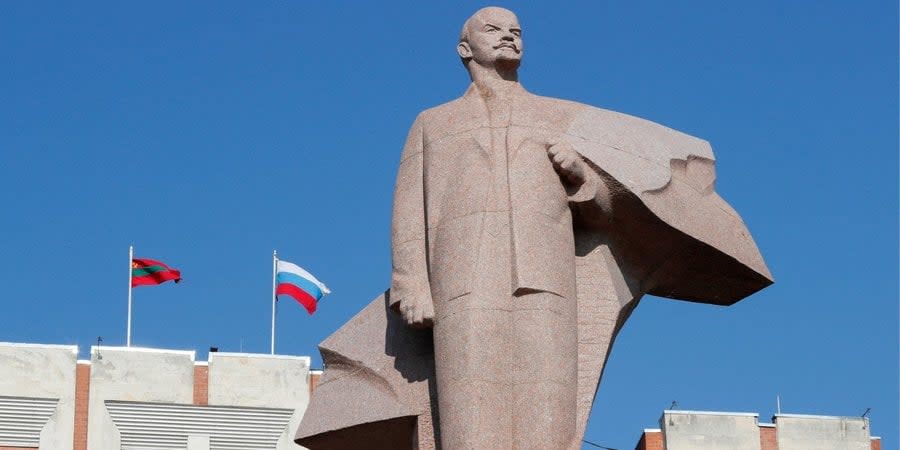Russia laying groundwork for a ‘false flag’ operation against Moldova in Transnistria

Russia is likely laying the informational groundwork to use the occupied area of Transistria in a possible ‘false flag’ operation against Moldova, the Institute for the Study of War (ISW) said in its Jan. 10 report.
The Kremlin has directed authorities in the separatist Moldovan region to prepare the information campaign as part of its broader efforts to destabilize Moldova.
Read also: If not for Ukraine, Russia would attack Moldova — President Sandu
Transnistria’s so-called “State Security Ministry” reported an “incident involving the use of firearms” on Jan. 7, which resulted in “two Transnistrian citizens being moved to Ukrainian territory”
An “incident involving the use of firearms” resulted in “two Transnistrian citizens being moved to Ukrainian territory” on Jan. 7, Transnistria’s so-called “State Security Ministry” (“SSM”) claimed, though Ukrainian border guards are unaware of any such “incident”.
Transnistria’s “SSM” is a Russia-controlled organization that effectively operates as a “department of Russia’s Federal Security Service (FSB),” the ISW clarified.
Read also: Impossible for Russia to land paratroopers in Transnistria, Ukraine says
Transnistrian “President” Vadim Krasnoselsky claimed that the “militarization” of Moldova supposedly threatens Transnistria, accused Moldova of halting negotiations with Transnistria, and listed “extensive” cooperation agreements between Russia and Transnistria in an interview with Russian state agency TASS on Jan. 9.
The SSM statement and Krasnoselsky’s interview are part of Russia’s attempts to lay the groundwork for the destabilization of Moldova and will form the justification for any future Russian actions in the region, ISW said.
The Kremlin may attempt to use 'false flag' operations in Transnistria as a pretext for Russia to claim its supposed "duty" to protect ethnic Russians and Russian speakers, the ISW warned.
Russia’s Foreign Affairs Ministry has already declared that it summoned the Moldovan ambassador to Russia to protest against Moldova's “unfriendly actions,” including the “politically motivated persecution of Russians and Russian-speaking media,” on Jan. 10.
“Russian side reserves the right to take additional measures in response,” Russian MFA stated.
The Russian MFA stressed that it would consider any plans of Chisinau to “assist NATO in preparing Ukrainian troops on Moldovan territory” as Moldova's “direct participation” in military actions on Ukraine’s side.
The Kremlin recently intensified usage of “compatriots abroad” and the “Russian world” concepts in the context of Moldova. Russia often uses these informational campaigns to justify its supposed right to protect ethnic Russians and Russian speakers beyond its borders. Russia used similar justifications when it intervened militarily to support Transnistrian separatists in 1992.
The Kremlin had already attempted to create an informational foundation for a possible 'false flag' operation in Transnistria in April 2022 and February 2023 but failed, partly due to economic reasons, ISW said.
The Kremlin was unable to involve Transnistria in its war against Ukraine at the time because local Moldovan-Russian businessman Viktor Gushan, who effectively controls the Transnistrian government and a significant part of its economy—benefited from ties with the West and Ukraine.
Read also: Ukraine’s security service dismantles scheme aiding draft dodgers to flee to Transnistria
The EU's Deep and Comprehensive Free Trade Agreement with Moldova allowed Transnistrian enterprises, registered in Moldova, to enjoy duty-free access to EU markets if they passed Moldovan customs checks. However, recent changes to Moldova's Customs Code, which require Transnistrian companies to pay import duties directly to Moldova, could disrupt these benefits.
Moldova has also expressed its readiness to initially join the EU without Transnistria, further depriving Transnistrian business of special access to EU markets.
We’re bringing the voice of Ukraine to the world. Support us with a one-time donation, or become a Patron!
Read the original article on The New Voice of Ukraine

